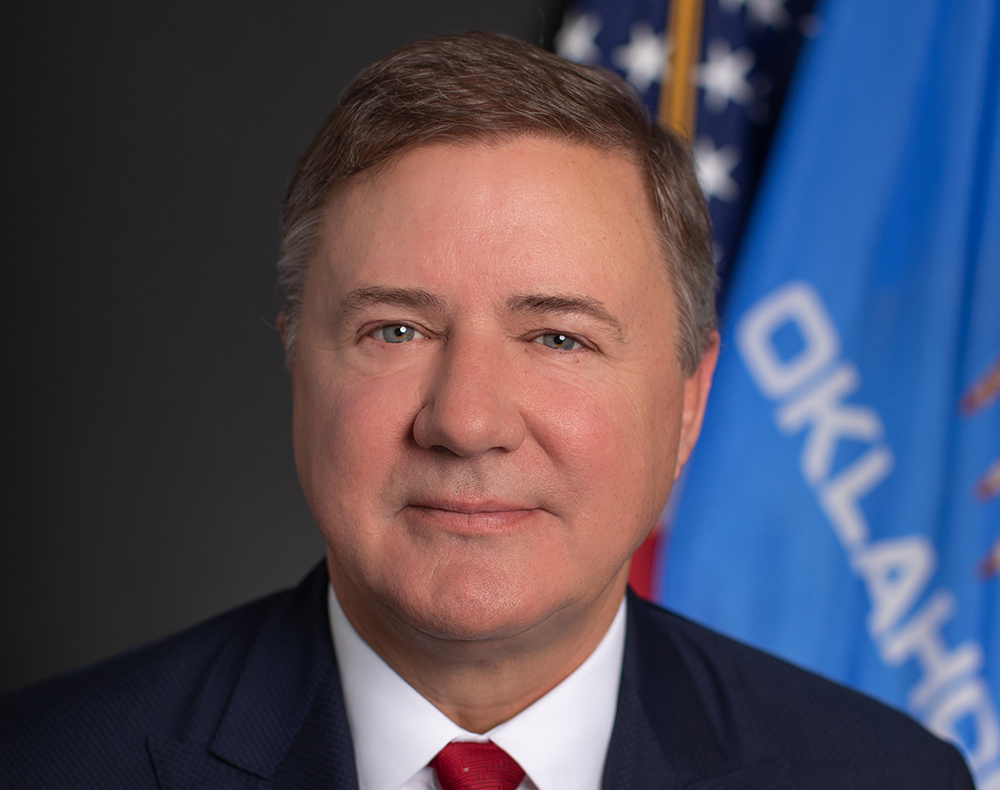
PROSPECT HEIGHTS — Even with multiple lawsuits pending that create an uncertain future, St. Isidore of Seville Catholic Virtual School in Oklahoma — the nation’s first state-funded religious school — has begun accepting applications for K-12 education set to begin this August.
As of March 25, 120 students have applied for the school, and 50 other families have expressed interest. The school, created by the Archdiocese of Oklahoma and the Diocese of Tulsa, has previously said it plans to have an initial enrollment of 500 students.
Bishop David Konderla of Tulsa announced that applications opened in a March 5 letter that was published on March 18, in which he highlighted that the school will help the Oklahoma dioceses reach families “in all corners of our state.” He also acknowledged the legal challenges that exist.
“St. Isidore will be a tremendous blessing to those in Oklahoma who would otherwise not have access to a Catholic education,” Bishop Konderla wrote. “Legal challenges still exist, but we remain strong in our pursuit of this worthy endeavor. We ask for your prayers and will continue to pray for you and your parishes.”
St. Isidore of Seville Catholic Virtual School is a virtual, K-12, Catholic school in Oklahoma, that is tuition-free and funded by the state as a charter school. The application is open to any student eligible for kindergarten to grade 12 — Catholic or otherwise — living in the state of Oklahoma.
Controversy has surrounded the school since its inception, on the grounds that it is a religious institution that is funded by the state. The Statewide Virtual Charter School Board approved a contract with the school on Oct. 9, 2023, making it the nation’s first state-funded religious school. Eleven days later, Oklahoma Attorney General Gentner Drummond sued the board for its decision.
In a statement on the day the lawsuit was filed, Drummond said the board members “violated the religious liberty of every Oklahoman by forcing us to fund the teachings of a specific religious sect with our tax dollars.” He also said he is prepared to litigate the issue to the U.S. Supreme Court if he has to.
“There is no religious freedom in compelling Oklahomans to fund religions that may violate their own deeply held beliefs,” Drummond argued. “The framers of the U.S. Constitution and those who drafted Oklahoma’s Constitution clearly understood how best to protect religious freedom: by preventing the state from sponsoring any religion at all.”
Not much has happened in the case since, but the Oklahoma Supreme Court announced in February that it set Tuesday, April 2, to hear oral arguments from both sides. A spokesperson for Drummond declined a Tablet request for comment on the school accepting applications, citing the ongoing litigation.
The school faces a second lawsuit filed last July by Americans United for the Separation of Church and State, the ACLU, the Education Law Center, Freedom from Religion Foundation, and others. That case got a new judge assigned to it last month. No hearing dates have been set.
Asked by The Tablet what, if any, contingency plans are in place for enrolled students if the school loses either of the lawsuits, John Helsley, the director of communications for the Archdiocese of Oklahoma City who is listed as the school’s media contact, declined to comment citing the ongoing litigation. School officials did not reply to a Tablet request for comment on the same information.
Both parties also declined a Tablet request to comment on the school’s staffing numbers. Listed on the school’s website are a principal, assistant principal, director of Catholic education, and a director of special education. The school is hiring “teachers: all grade levels K-12 and subject areas,” according to the website.
In the letter, Bishop Konderla also gives more insight into the school’s model.
Bishop Konderla said that the school will have a faith formation and sacramental life program intended to support both the domestic church and the local parish community. He said once the geographic information of the students is known, the school will seek out partner parishes willing to serve as hubs for occasional gatherings of local students. These are spaces where students, parents, and educators can gather for Mass, confession, academic electives, tutoring, and extracurricular activities once or twice a month, he said.
In general, Bishop Konderla said that the catechetical formation and sacramental life of the Catholic students will include online prayer services, Scripture study, the rosary, theology classes, study of the saints, virtue development, and service to a family and community — in all of which non-Catholic students can participate.
Bishop Konderla said that the school will have two all-school Masses each year — one in the Archdiocese of Oklahoma City and one in the Diocese of Tulsa. All other Masses will be served through a family’s local parish or parishes willing to serve as hub locations.
As for the curriculum, Bishop Konderla said the school will follow a Catholic liberal education, and all curriculum resources will be chosen in all subjects “to enlighten and strengthen the intellectual capacity of children to seek truth through faith and reason.” He added that for learning the school will utilize Google Chromebooks and hands-on materials.
“For our Catholic families, this is a tremendous pastoral opportunity to assist in passing on the Catholic faith to their children,” Bishop Konderla said. “For all students, it is an opportunity to be formed in what is true, good, and beautiful.”
